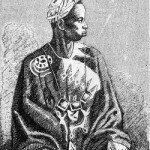The Art and Science of Decision-Making
March 11, 2013 Blog Faizaan Khan
We’ve all been there, at the Krispy Kreme counter, deciding whether we’d prefer an extra original glazed, or opt for a second calorific chocolate-praline-fudge-cake doughnut to take the last coveted place in the box of twelve. You could save yourself the hassle of making the decision by opting for a box of their pre-selected doughnuts – but where’s the fun in that? Whether you go for the original glazed, or one of their fancier alternatives, chances are the consequence of either choice will not impinge on anything significant apart from your gastronomic satisfaction.
The above example is just one of the many situations we find ourselves in everyday (before you assume, I don’t go to Krispy Kreme everyday) – situations that require us to make decisions. Not all decisions carry the same consequences, and our approach to decision making maybe the total opposite of how another person would approach a similar situation. If you’re like me, you’ll spend a (relatively!) long time weighing up your options before you decide to go with one thing over another. The downside of this approach is that sometimes you over-analyse, and worst of all you may even postpone the decision or not even make it at all. The other extreme is to make every decision on a whim, or follow what someone else, not taking into consideration your individual circumstances. In an ideal world we would all like to be somewhere in the middle by being both efficient and precise when making decisions.

Comparison graph
Dan Ariely, in his talk ‘Are we in control of our own decisions?’ (TED Monterey, CA, 2008 – click the play button above to watch) adds a new dimension to how we think about decision making, he questions the preconceived notion that we have absolute control over our decision making faculty. He uses the example of how the composition of an organ donation form can have such a significant impact on the percentage of the population that has signed up to the register.
The countries that have high numbers of their populations signed up for organ donation take advantage of our propensity not to tick boxes on forms for fear of being bombarded with junk mail. They achieve this by asking people to tick the box only if they want to ‘opt-out’, whereas countries with a lower numbers ask people to tick the box only if they wish to ‘opt-in’. You could argue this is unfair as it may not reflect an individual’s true wish, but that is another topic altogether. In terms of controlling what decisions we make, it just goes to show how we’re not always in the driving seat when it comes to making decisions, and that they are sometimes made for us through seemingly benign things such as the composition of a form.

Tick-box exercise
Choice
Dan Ariely shares further examples of how the presence of different choices can result in making irrational decisions. Without going into detail, the general gist is that you tend to go for the choice that gives you the illusion of superiority over the other choices, even though the element of the choice that makes it superior is often trivial. For example, you have three choices:
1. A weekend in Rome;
2. A weekend in Paris; or
3. A weekend in Rome with coffee
Automatically, option three would seem superior to option one, even though the fact that you get a £3 Americano thrown in is quite trivial. The interesting thing is that it can even lead you to think option two is most inferior because there is no similar offer of coffee with Paris. However, if you were to take option three out of the equation, it would make for a decision based on more substantive elements rather than just the free coffee.
So what?
What impact does this have on us generally? Dan Ariely explains it in terms of realising that we have cognitive limitations. That is not to say we are not smart, but that we have designed a world that is not in sync with the way most of us we process information and that if we took the lessons from his research and realised our limitations, we could build more intuitive systems that are easier to understand for everyone.
Related Posts
Faizaan Khan
Future lawyer who loves travelling, cars, cricket, good food and all things China!

 The Salesman’s Story
The Salesman’s Story
 Save Our Children
Save Our Children

 The Evolution of the Emcee: Griots & Hip-hop
The Evolution of the Emcee: Griots & Hip-hop
